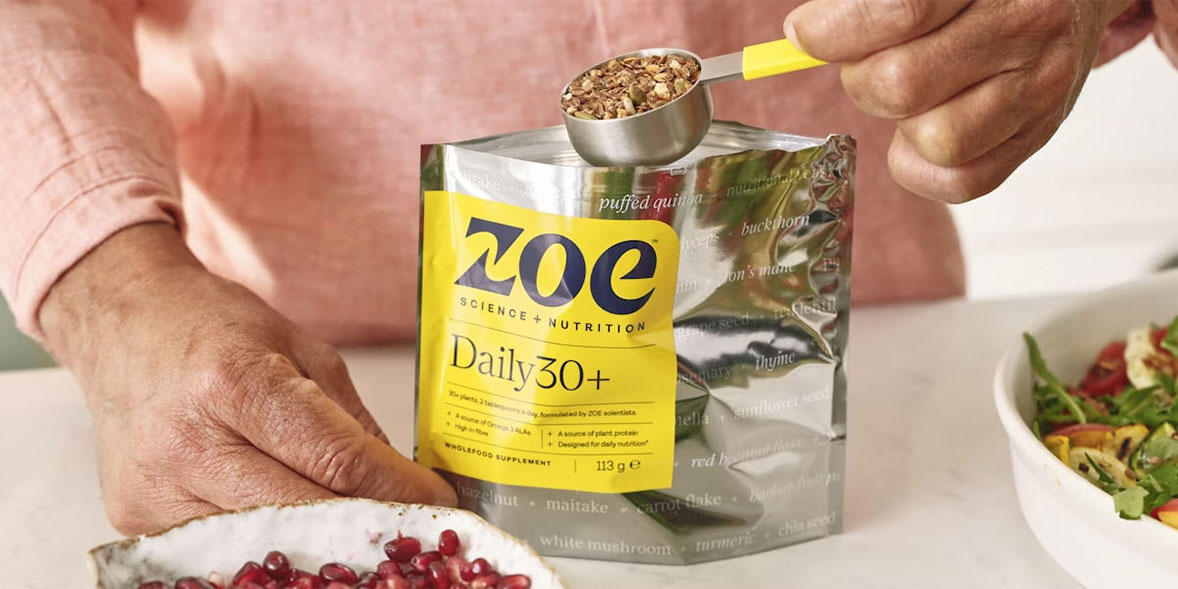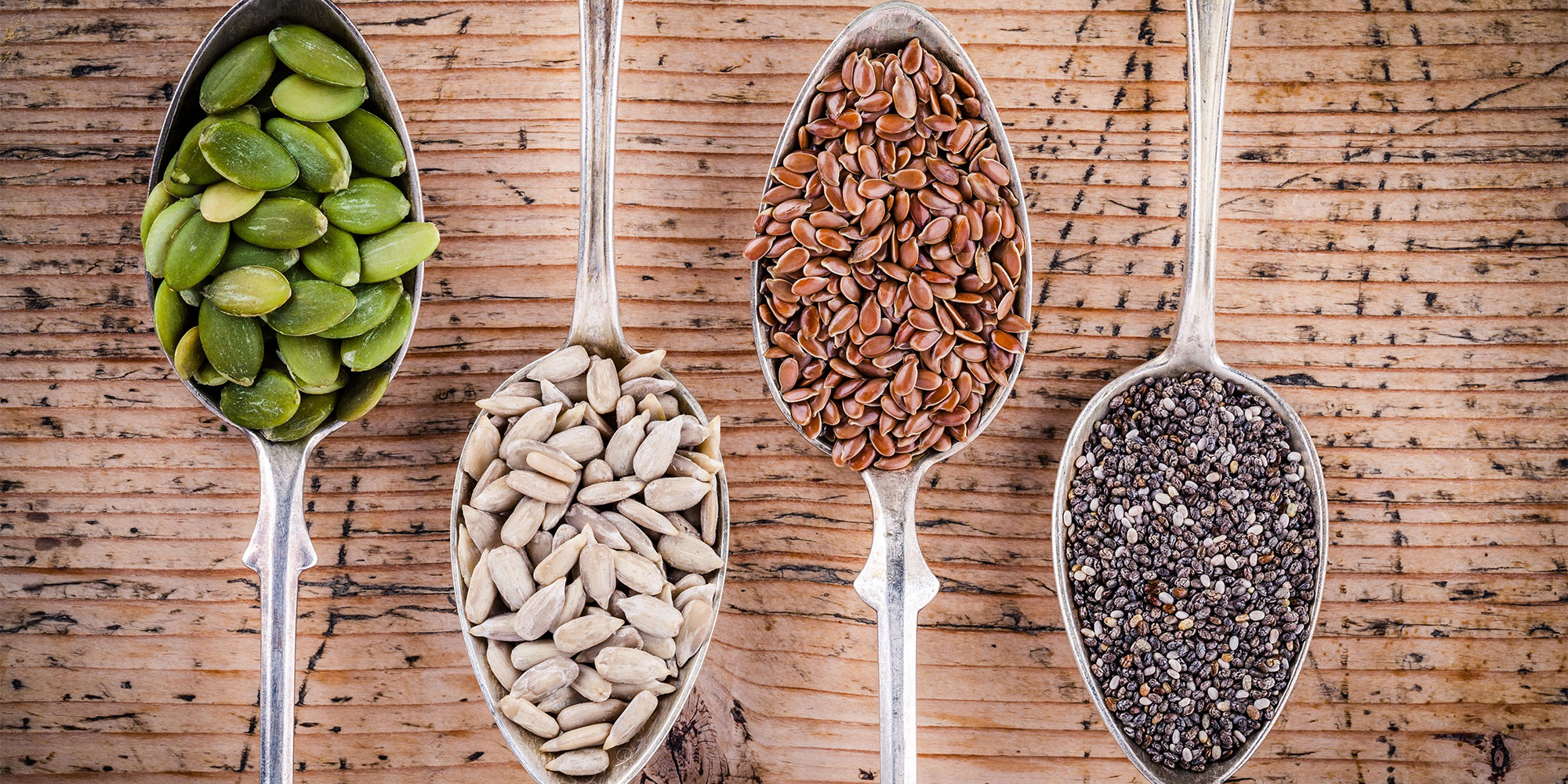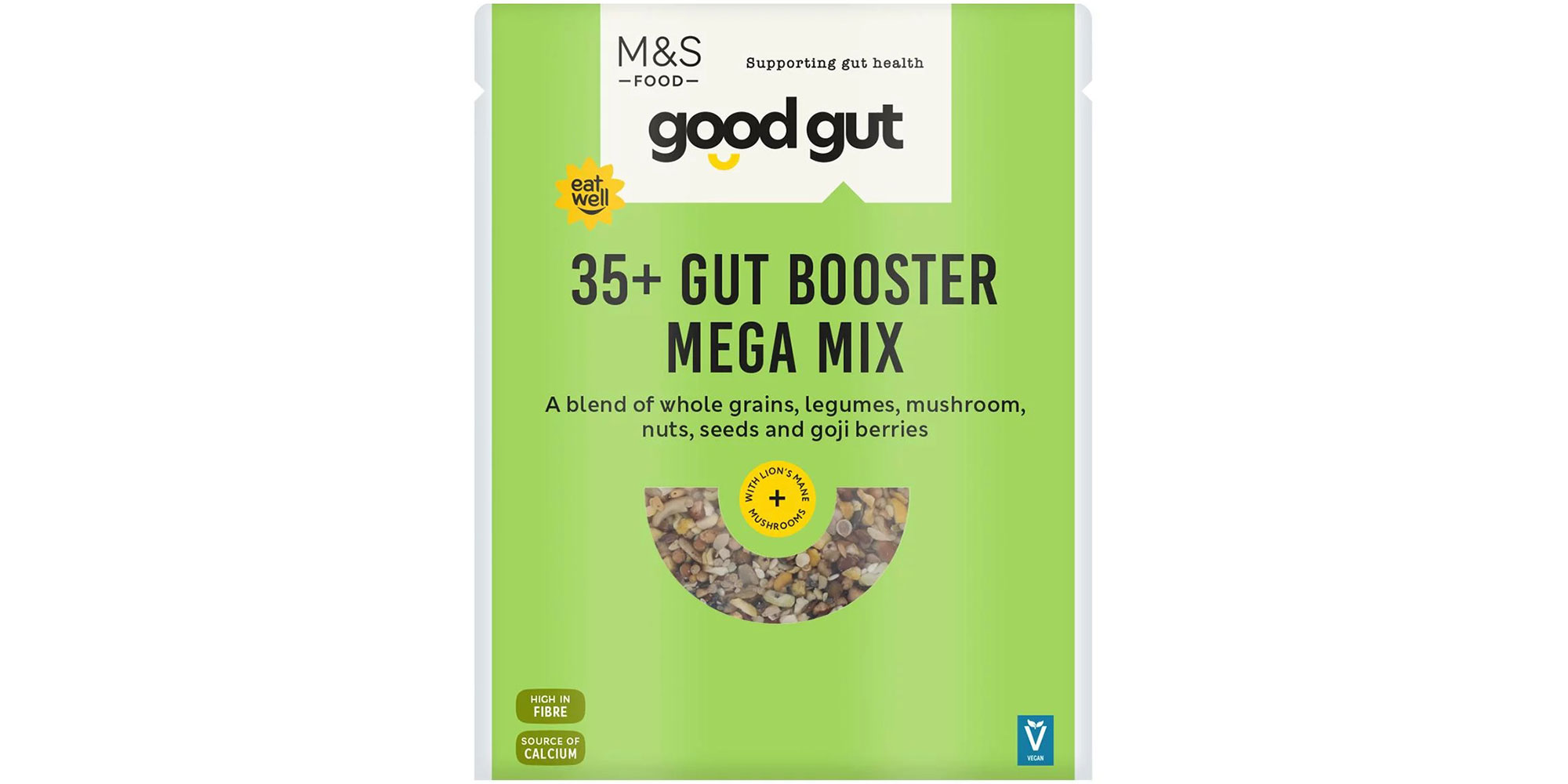
Healthy living
Use our expert advice and recommendations to live your best life every day.
Get startedBy clicking a retailer link you consent to third-party cookies that track your onward journey. This enables W? to receive an affiliate commission if you make a purchase, which supports our mission to be the UK's consumer champion.

Nutrition brand Zoe, known for its nutrition app and digestive health test, also sells a Daily30+ food supplement, which can be sprinkled over your meals.
Zoe claims that this plant-based mix supports a more diverse diet and your wider gut health and energy levels.
But at £45 a pop for one month's supply (approx £1.50 per day), is it worth forking out for?
We take a look at what you get for your money, why diversity matters in your diet, and get tips from our nutrition expert, Shefalee Loth, on budget ways to make tasty, gut-boosting mixes at home.
The Daily30+ supplement is a mix of dried fruit, nuts, seeds, grains, herbs, spices and mushrooms.
It's a wholefood supplement that you sprinkle on food, rather than a tablet, and is aimed at supporting gut health, improving digestion and increasing energy.
It has a mild, largely savoury taste that lends itself to being added as a topper to dishes such as salads, soups and other meals.
Zoe says one scoop daily will 'help you reach the optimal amount of fibre and plant diversity for a healthier and balanced diet'.
The Daily30+ mix contains the following:
The recipe underwent a slight change in October 2025. With four new ingredients added: raspberry, goji berry, kale and fermented green tea (kombucha). Zoe says this was to add more sweetness for when you use it on things like porridge, and to improve the diversity of the mix.
It also got pricier (£45 vs £39) and the pack size shrunk from 500g to 450g.
It's available online direct from Zoe for £45 for a 450g pouch (£10 per 100g, 30-day supply on a monthly subscription).
If you buy the four-month bundle, it works out cheaper – currently £133 (4 x 450g packs, £7.40 per 100g) and you get a tin, scoop and travel pouch.

It's all about increasing the range of plant foods you eat in a week, something that recent studies have shown can help your wider gut health. A large-scale study of 10,000 people by the American Gut Project in 2018 found that those with the most diverse microbiomes consumed 30 or more different plant types weekly as part of a healthy diet.
Other benefits include increased fibre and other beneficial nutrients in your diet.
Zoe says it has formulated Daily30+ with these things in mind. It carried out a randomised controlled trial, published in 2024, on its original Daily30+ supplement formulation (with plans to retest the current, newer recipe later this year). In six weeks, the participants' gut microbiomes were in a more favourable state, and they reported benefits including greater fullness and energy levels and a reduced desire to eat.
Best magnesium supplements - discover which products impressed when we reviewed 26 popular options

Jessica Carson, Which? health and wellbeing editor
I tried out Zoe's Daily 30+ supplement as part of our recent review of the updated Zoe nutrition app, so we could give you a better insight into the taste and experience of using it.
I thought it generally had a relatively mild, pleasant taste, with nice little hints of sweetness from the goji berries and some savoury notes too. The crunch levels were good and it's certainly a simple way to add more diversity to meals.
However, while I didn't mind the sweeter elements on savoury meals, the mushroom / herby notes were offputting when eating with a sweeter treat such as yoghurt with fruit or porridge. This might come down to personal preference, but I'll be sticking to using it on savoury dishes from now on!

At £45 for a 30-day supply, Daily30+ isn't a cheap option, but it's also not a simple one to make yourself.
Buying all 30 ingredients separately would be a big initial outlay if you were trying to recreate it at home, plus it's impossible to know exactly how much of each of them you'd need to replicate the supplement for both dosage and taste.
Some ingredients, such as some of the mushrooms included – lion's mane, chaga and tremella, for example – can be quite pricey. However, these also come last in the ingredients list, which is in size order, and are likely to be included in relatively small amounts compared with the more everyday - and cheaper - seeds and nuts near the top of the list.
The Zoe formulation provides prebiotic fibre, plant protein, omega 3 and polyunsaturated fatty acids as well as plant polyphenols. It's also naturally high in copper, which contributes to normal energy-yielding metabolism, and is a natural source of calcium.
These are all good things and, obviously, a key plus point with this particular product is that Zoe has the scientific study to back up its benefits. That isn't cheap to do, so you're partly paying for the 'science' bit.
Which? nutritionist Shefalee Loth advises that the principle of adding a more diverse mix of plant foods to your meals is achievable in other more budget-friendly ways and has widely accepted benefits. So, if the price is a sticking point for you, there are cheaper alternatives that will still be beneficial.
There are a few other booster-style mixes on the market, which are less expensive (see more below), or you can do your own DIY mix.
The benefit of this is that you could make tailored sweet and savoury ones, to increase your options (and up your dietary diversity). You could add some dried fruit, nuts and some spices such as cinnamon and ginger to your sweet mix, and focus on more savoury herbs, grains and seeds for your savoury mix.
Shefalee suggests aiming for a combination of:
Sprinkle on top of porridge, cereal or yoghurt as well as savoury meals and salads. You could also add it to sandwich fillings.

Use our expert advice and recommendations to live your best life every day.
Get started
There are cheaper ready-made alternatives available too. Many of these will still give you a good mix of extra dietary diversity, so it's worth experimenting to see which you like best (or changing it up regularly for extra diversity).
The M&S Good Gut 35+ Gut Booster Mega Mix (available from M&S in-store and Ocado, £6 for 300g, £2 per 100g) has plenty of variety included, though there are differences to the Zoe Daily30+ mix.
The M&S mix contains sunflower, pumpkin, poppy, chia, sesame and coriander seeds, pine kernels, goji berries, legumes (chickpeas, lentils, yellow and green peas, broad beans), nuts (peanut, cashew, hazelnut, walnuts, macadamia, pistachio, almond), oats, grains (quinoa), lion's mane mushroom, sorghum and millet.
It has more nut varieties than Zoe's Daily30+, including cashew, peanut, macadamia and pistachio, and more cereals such as oats and millet, but less breadth in terms of types of food. There are fewer mushrooms, herbs, spices and extras such as chicory inulin, buckthorn and seaweed.
Zoe's mix also has more fibre per 100g (23g vs 15.4g). But the M&S mix is still an excellent option if you want to pack in plenty of variety.
Other seed mixes you'll find in supermarkets tend to be much more limited, with three or four types of seeds, such as:
All will add some extra diversity, fibre and beneficial nutrients to your daily diet though, so it's worth experimenting to see what works best for you.
It's also worth remembering that if you have any gut health conditions, it's best to check with a health professional before making significant changes to your diet as, for example, too much fibre can exacerbate some conditions.
Zoe nutrition app and gut test review: get our updated verdict on the new version

Shefalee Loth, Which? principal researcher and nutritionist
Shefalee is a public health nutritionist with 20 years' experience, and has worked for the NHS, The London School of Hygiene & Tropical Medicine and World Cancer Research Fund
At Which? Shefalee is a principal researcher, researching and writing food and nutrition content for our magazine and website and is a media spokesperson. She is also a trustee at Sustain, the food and farming alliance.
She focuses on cutting through the hype to explain what you need to know about nutrition and healthy eating. From ultra-processed food to the gut health myths you need to know about and what really works to cut cholesterol, Shefalee gives no-nonsense advice to help you make healthier choices and save money.